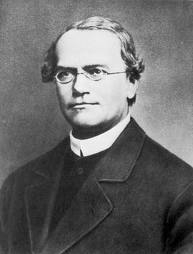



Darwin's theory of natural selection, published in the Origin of Species in 1859, provided a logical explanation for the observed changes in species over time and space, but critics argued that without an understanding of the mechanism of inheritance, it was incomplete. While it was generally accepted that offspring resembled their parents, the details were not understood. A genetic model for the inheritance of traits emerged from the rediscovery of Mendel's work in 1900 and, with the synthesis of these two concepts, the foundations of the modern field of Evolutionary Biology were laid.
Evolution is not controversial among scientists. It is the foundation upon which all of biology and medicine is based. Modern medicine depends upon the fact that when we learn something about an animal, we can apply that knowledge to humans (and vice versa), and that the more related (and therefore more similar) two species are, the more likely that treatments will work the same way in each. If mammals, for example, weren't all pretty closely related, then the medicines that work on your dog or cat wouldn't necessarily work on you, but they do! For the same reason, berries that are poisonous to mammals can be safely digested by our more distant relatives, the birds. And certain pesticides and herbicides that are deadly to insects and weeds are only mildly irritating or harmless to us.
In the treatment of bacterial infections, we can observe evolution in action because the generation times are so short. Treating an infection with antibiotics is a form of natural selection. The medicine can kill off most bacteria (unfortunately even the beneficial ones, which is why taking antibiotics often results in diarrhea) but, if a resistant mutant form arises, it will flourish. When resistance evolves, we need to use different medicines to treat them. That's why you are instructed to take the entire course of your antibiotics; you want to kill every last one of them. If you start to knock back a bacterial infection, begin to feel better and then stop taking the medicine, you give the bacteria a chance to bounce back and mutate, developing resistance to the drug. You have accidentally selected for a strain of bacteria that will be harder to kill, and which might even kill you or the people you infect! The over-prescription of antibiotics and the improper use of these medicines is becoming a serious problem. Antibiotics which used to be highly effective need to be reformulated to work against the new breed of superbugs we've accidentally created.
Arguments about the relatedness of humans and apes get some people very upset, but that's not the important part of the story. What is clear from many lines of evidence is that life on Earth arose (or survived) only once, and that everything alive today is descended from that single common origin event. We all pass down our characteristics from one generation to the next using instructions encoded in a unique biomolecule (DNA). We are all built from the same small set of 20 amino acid building blocks. We all share a series of ancient, lengthy, complex, and virtually identical gene sequences that drive our most basic metabolic processes. Over the almost 4 billion years of which there has been life on Earth, our primitive common ancestors diverged into a wide variety of life forms. Many branches of the tree died out but, eventually, much more recently, a few branches of that evolutionary tree became complex and led to the fungi, the plants, and the animals, of which we are just one species among many.
All of these separate lines of evidence argue for our relatedness. It really is amazing that, out of common, simple inorganic chemicals and quite against the odds, the universe "invented" a creature capable of studying and trying to understand itself! Evolution is the only scientific explanation for the diversity and complexity of life on Earth, and for our place in it. It is much more than a theory; it is the law of life. In the words of a famous biologist,
-Theodosius Dobzhansky, Geneticist, Columbia University